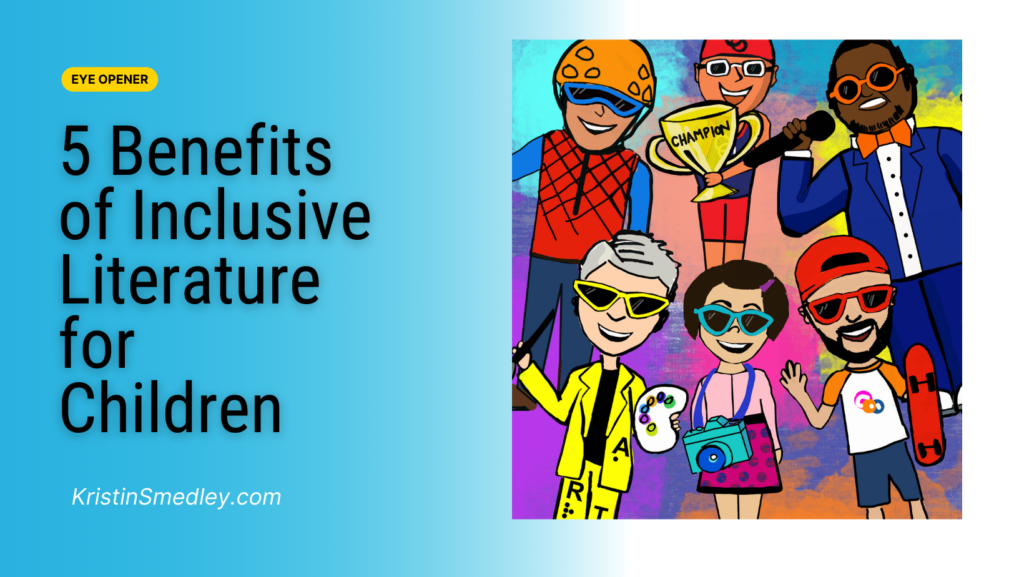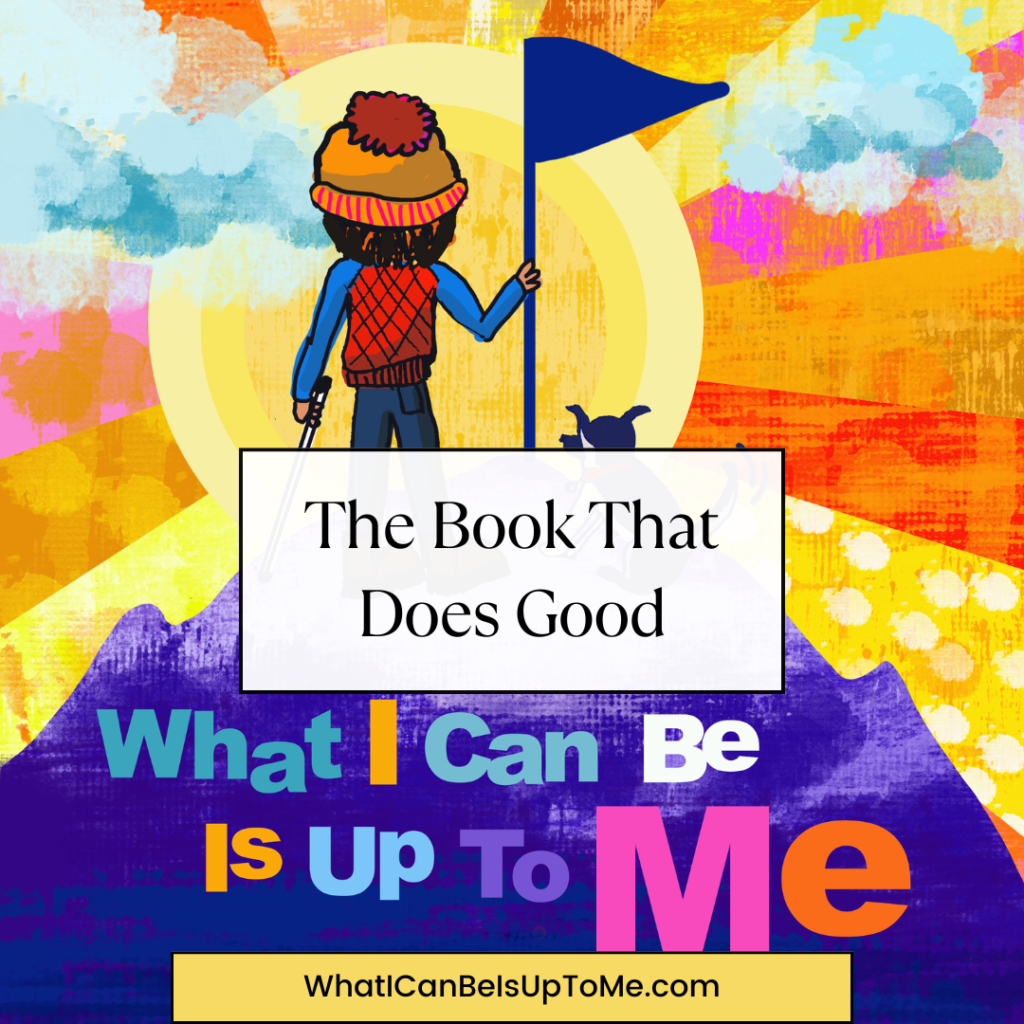As a former elementary school teacher turned children’s book author, I have seen firsthand the profound impact that inclusive literature can have on young minds. My journey from the classroom to authoring “What I Can Be Is Up to Me” was fueled by a passion to educate children on seeing disability differently and fostering a world where diversity is not just accepted but celebrated.
Inclusive literature plays a crucial role in this mission. It’s not just about telling stories; it’s about changing perceptions, building empathy, and shaping the future. Here are just five of the benefits of inclusive literature for children:
- Fostering Empathy and Understanding Inclusive literature helps children understand and appreciate diverse perspectives and experiences. By reading about characters from different backgrounds, abilities, and cultures, children develop empathy and learn to respect and value differences. This foundational empathy is essential in nurturing compassionate individuals who can connect with others on a deeper level.
- Promoting Self-Identity and Confidence When children see themselves represented in books, it validates their experiences and boosts their self-esteem. Inclusive literature ensures that all children feel seen and heard, fostering a positive self-identity and confidence in who they are. This representation is particularly important for children with disabilities, who often struggle to find characters that reflect their own experiences.
- Encouraging Social and Emotional Learning Inclusive stories often address various social and emotional issues, such as bullying, friendship, and overcoming challenges. These narratives provide children with tools to navigate their own emotions and relationships, promoting emotional intelligence and social skills. Understanding these dynamics early on equips children to handle complex social interactions throughout their lives.
- Enhancing Cognitive and Academic Development Exposure to a wide range of stories and perspectives enhances critical thinking and comprehension skills. Children learn to analyze different viewpoints, recognize biases, and appreciate the richness of diverse narratives, contributing to their overall cognitive and academic growth. This diversity in literature broadens their horizons and prepares them for a complex world.
- Building an Inclusive Society By reading inclusive literature, children learn the importance of inclusivity and equality from a young age. This awareness helps shape their attitudes and behaviors, encouraging them to become more inclusive, open-minded, and accepting individuals who contribute positively to a diverse society. An inclusive mindset nurtured in childhood can lead to a more equitable and harmonious world.
A Call to Action
I encourage every parent and educator to take a close look at their family and classroom libraries. Are your bookshelves reflective of the diverse world we live in? Are they inclusive of different abilities, cultures, and perspectives? If not, now is the perfect time to make a change.
Inclusive literature is not just a tool for education; it’s a vehicle for transformation. By incorporating these books into your child’s or students’ reading list, you are investing in a more compassionate and inclusive future.
To learn more about my inclusive, accessible children’s book “What I Can Be Is Up to Me” and how it can make a difference in your library, visit whaticanbeisuptome.com. Connect with me on Instagram to share what inclusive books YOUR child/student loves and let’s build our libraries of inclusive books together!
Discover the power of embracing ability and advantage in disability through Kristin Smedley’s transformative books, impactful speaking engagements, enlightening workshops, and thought-provoking films. Dive into her best-selling book “Thriving Blind” on Amazon, and elevate your next event by booking Kristin at kristinsmedley.com to ignite conversations that foster inclusivity and empowerment.






